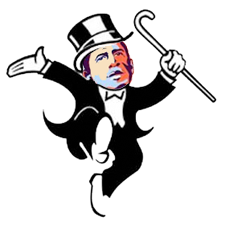President Barack Obama is not targeting the country’s 99 percent against the wealthiest 1 percent. In a news conference, yesterday, he instead singled out the top 2 percent.
Even though they account for 46 percent of all income taxes collected, Obama says members of this group don’t pay their “fair share.” Meanwhile, the bottom 50 percent of income earners pay just 3 percent of income taxes. 
Though the president readily confesses to being in that top two-percent, sadly I’m not. But hey, even if I’m not rich, this country is as much mine as any wealthy person’s. If tax hikes truly are necessary (and this is for the sake of argument — I do not believe they are), shouldn’t I be part of his tax-hike solution to our national deficit and long-term debt?
Even those making less could afford to hand over an extra percent or two of their income for essential government services, eh?
And why leave out the poor? A surcharge of $20 (or $10 or $2.50) a year — even if that’s only removed from their earned income credits or food stamps or welfare payments — would put their “skin in the game.”
We should all be in this together, so why didn’t Obama propose a solution that included sacrifices by everyone?
My guess: It has nothing to do with revenue, everything to do with November’s election.
Obama is asking Congress to extend the Bush tax cuts for everyone making less than $250,000 a year. But he seeks a mere one-year extension.
Why?
My guess is that the over-$100,000 cohort is next on his list.
But he needs their votes, first.
This is Common Sense. I’m Paul Jacob.